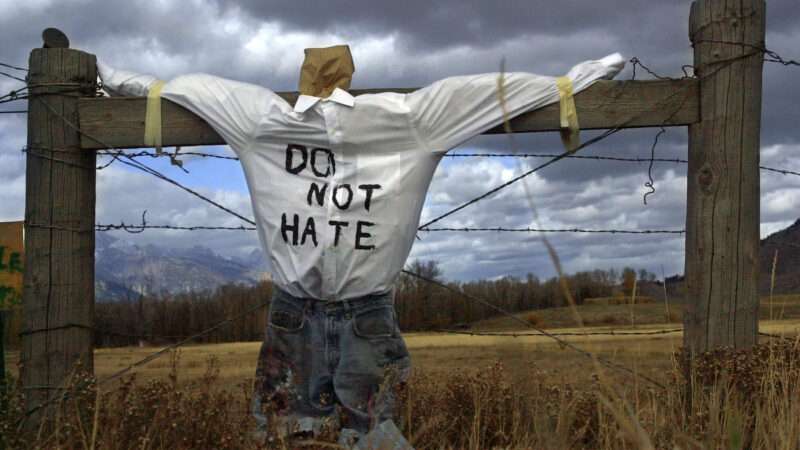
In the fall of 1998, a man named Matthew Shepard was savagely beaten, strung out on a fence like a scarecrow, and left to die as the Wyoming night temperatures plunged. Over the last two and a half decades, the killing has been called many things. But a BBC headline from 2018 perhaps captures best: It was "the murder that changed America."
A statement from President Joe Biden helps explain why. "Twenty-five years ago today, Matthew Shepard lost his life to a brutal act of hate and violence that shocked our nation and the world," he said this morning. "The week prior, Matthew had been viciously attacked in a horrific anti-gay hate crime and left to die – simply for being himself."
Shepard's murder was, without a doubt, an act of hate and violence. But the latter part of Biden's statement—that his murder was spurred by homophobic animus—is the most important. For years, it has been repeated in some of the largest media outlets. It has driven federal policy. It is the part that "changed America," despite all evidence pointing to the fact that it isn't true.
If Biden's statement is any indication, that claim has regardless had long-lasting consequences, including a federal hate crime law bearing Shepard's name that broadened those offenses and gave federal law enforcement more muscular authority to pursue such investigations. Over the years, his death has been invoked as proof that gay people have a great deal to fear in the U.S. "simply for being" themselves, per the president.
How the robust narrative took shape is complex. But it didn't take very long. A few initial elements possibly corroborating such a story were there: Shepard was, indeed, gay; Aaron McKinney—one of the murderers, along with Russell Henderson—used gay slurs in his confession; and McKinney's attorneys attempted to introduce the "gay panic defense," hoping to argue at trial that he had essentially descended into madness when Shepard put a hand on his leg. (The judge was not having it, and his team was prohibited from employing that.)
There were, however, many questions that continued to go unanswered after the initial shock wore off. "The act-of-hate story never quite added up," wrote Elizabeth Nolan Brown in the October 2021 issue of Reason. "Why did police insist that the perpetrators' primary motive was robbery? Why did the allegedly violently homophobic perpetrators supposedly pretend to be gay? And if hate crime protections were needed to stop horrific acts like this from happening, why did Wyoming have no trouble convicting the men of first-degree murder and sentencing them to life in prison?"
It wasn't until the prominent gay journalist Stephen Jimenez published his 2013 book, The Book of Matt: Hidden Truths About the Murder of Matthew Shepard, that those gaps started to narrow significantly. McKinney and Shepard reportedly were connected by the drug trade, with Shepard set to receive a $10,000 shipment of methamphetamine around the time he was killed. Also relevant is that McKinney was allegedly not traumatized by advances from Shepard, as the two had been sexually involved.
In other words, Shepard's murder was almost certainly fueled by disagreements over money and drugs rather than gay identity, something that Henderson confirmed in an interview from prison with the Associated Press in 2018.
But the myth has continued to persist, as they sometimes do when in service of what is seen as the greater good. "25 years after Matthew Shepard's death," the A.P. noted in a piece this morning, "LGBTQ+ activists say equal-rights progress is at risk." Contrast that with what Shepard's father, Dennis, reportedly told Wyoming's governor not long after the murder: "We should not use Matt to further an agenda," he said. "Don't rush into just passing all kinds of new hate crimes laws. Be very careful of any changes and be sure you're not taking away rights of others in the process to race to this."
Yet, we've done that and more. Shepard continues to live on in calls for government intervention and a buttressed police state, as well as culturally, when we tell younger generations of gay people that they could be next.
Shepard's murder was evil. It was evil because murder is evil. Unfortunately, though, that's not always enough.
The post Matthew Shepard's Murder Was Almost Certainly Not an Anti-Gay Hate Crime appeared first on Reason.com.







